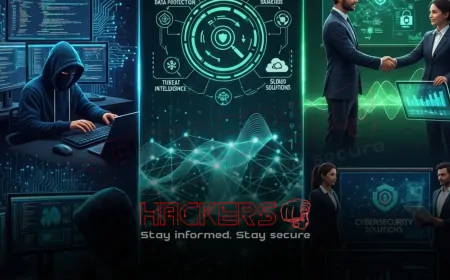Why Is Balancing Law Enforcement Powers and Citizen Rights So Challenging in Cybersecurity?
Imagine a world where a hacker steals your personal data, and the government steps in to track them down—but in doing so, they monitor your private messages too. Cybersecurity is a battleground where law enforcement fights to catch cybercriminals while trying not to trample on your right to privacy. It’s a tough balance: governments need powers to investigate cybercrimes like hacking or ransomware, but citizens demand protection from overreach, like unwarranted surveillance. In our digital age, where every click generates data, finding this equilibrium is more challenging than ever. Whether you’re worried about your online privacy or curious about how governments tackle cyber threats, this blog breaks down why balancing law enforcement powers and citizen rights in cybersecurity is so tricky. Written in clear, beginner-friendly language, we’ll explore the tensions, legal frameworks, and real-world impacts. Let’s dive into this complex issue!

Table of Contents
- What Is the Balance Between Law Enforcement and Citizen Rights?
- Why Cybersecurity Complicates This Balance
- Law Enforcement Powers in Cybersecurity
- Citizen Rights in the Digital Age
- Comparing Global Approaches
- Key Challenges in Balancing Both
- Solutions to Achieve Balance
- Conclusion
- Frequently Asked Questions (FAQs)
What Is the Balance Between Law Enforcement and Citizen Rights?
Balancing law enforcement powers and citizen rights means giving governments enough authority to maintain safety—like catching cybercriminals—while protecting individual freedoms, such as privacy and free speech. In cybersecurity, this balance is about allowing police or agencies to investigate cyber threats (e.g., hacking or online fraud) without invading your personal data or monitoring your online activity excessively. Laws define what law enforcement can do, like accessing data or tracking suspects, and what rights you have, like knowing when your data is accessed. Getting this balance right ensures security without turning the internet into a surveillance state. For you, it means your data is safe from both hackers and overzealous government oversight.
Why Cybersecurity Complicates This Balance
Cybersecurity makes this balance tricky because the digital world is complex and borderless. Here’s why:
- Global Nature of Cybercrime: Hackers can attack from anywhere, requiring law enforcement to cross borders, which complicates legal authority.
- Massive Data Collection: Social media and apps collect tons of personal data, tempting governments to access it for investigations but risking privacy.
- Advanced Threats: Cyberattacks like ransomware (malware locking data until a ransom is paid) demand quick action, often pushing for broader surveillance powers.
- Encryption: Tools that scramble data to keep it secure can hide criminal activity, sparking debates over whether governments should have access.
- Anonymity Online: Cybercriminals use tools like VPNs to hide their identity, making investigations harder without intrusive measures.
These factors create tension between stopping cybercrime and protecting your right to a private digital life.
Law Enforcement Powers in Cybersecurity
Governments use specific powers to combat cybercrime, but these can clash with citizen rights. Common powers include:
- Data Access: Agencies can request data from companies, like your social media activity, to track suspects.
- Surveillance: Governments monitor online activity, like emails or browsing, to detect threats like terrorism or hacking.
- Encryption Backdoors: Some laws push for access to encrypted data, allowing authorities to unlock it for investigations.
- Cybercrime Prosecution: Laws allow agencies to seize devices or freeze accounts linked to cybercrimes like phishing (fake emails to steal data).
- International Cooperation: Treaties like the Budapest Convention let countries share data to catch global cybercriminals.
While these powers help stop crime, they can lead to overreach, like monitoring innocent users or accessing data without clear justification.
Citizen Rights in the Digital Age
Citizens have rights to protect their privacy and freedom online, which laws aim to uphold. These include:
- Right to Privacy: You have the right to keep your personal data, like messages or browsing history, private from unwarranted access.
- Data Control: Laws like GDPR let you access, delete, or restrict how companies use your data.
- Transparency: You should be informed if your data is accessed by authorities or companies during investigations.
- Free Speech: Your right to express opinions online without fear of censorship or surveillance is protected.
- Protection from Abuse: Laws ensure governments don’t misuse powers, like mass surveillance, without oversight.
These rights safeguard your freedom, but they can limit law enforcement’s ability to act quickly against cyber threats.
Comparing Global Approaches
Countries balance law enforcement and citizen rights differently in cybersecurity. Here’s a comparison:
| Region | Key Law | Law Enforcement Power | Citizen Rights | Balance Challenge |
|---|---|---|---|---|
| EU | GDPR, ePrivacy | Data access with oversight | Strong privacy rights | Slow investigations |
| USA | CLOUD Act, Patriot Act | Broad surveillance powers | Limited data control | Privacy concerns |
| India | IT Act, DPDPA | Data monitoring allowed | Emerging privacy rights | Vague oversight |
| China | Cybersecurity Law | Extensive surveillance | Minimal rights | Overreach risks |
| Australia | TOLA Act | Encryption backdoors | Moderate privacy | Backdoor concerns |
The EU prioritizes privacy, the U.S. leans toward security, India is evolving, China favors control, and Australia pushes encryption access, each facing unique balance issues.
Key Challenges in Balancing Both
Balancing law enforcement powers and citizen rights in cybersecurity is fraught with challenges:
- Global Jurisdictions: Cybercrimes cross borders, but differing laws slow down investigations and data sharing.
- Encryption Debates: Strong encryption protects privacy but hides criminal activity, sparking calls for government access.
- Surveillance Overreach: Broad monitoring powers, like mass data collection, can violate privacy without catching criminals.
- Public Trust: Excessive government access erodes trust, making citizens wary of sharing data for investigations.
- Technological Pace: New threats like AI-driven attacks outpace laws, requiring broader powers that risk rights violations.
These challenges make it hard to create laws that empower law enforcement while safeguarding your freedoms.
Solutions to Achieve Balance
Finding balance requires creative and fair solutions. Here are some approaches:
- Clear Oversight: Create independent bodies to monitor law enforcement’s data access, ensuring it’s justified.
- Transparent Laws: Make surveillance rules clear and public, so citizens know when and why their data is accessed.
- Global Agreements: Expand treaties like the Budapest Convention for faster cross-border cooperation without overreach.
- Privacy-First Tech: Promote tools like encryption that protect users while allowing limited, lawful access for investigations.
- Public Education: Teach citizens about their rights and how law enforcement uses data to build trust and cooperation.
These solutions aim to give law enforcement the tools they need while keeping your rights intact.
Conclusion
Balancing law enforcement powers and citizen rights in cybersecurity is a high-stakes challenge in our digital age. Governments need authority to tackle cybercrimes like hacking or ransomware, but without checks, these powers can erode privacy and freedom. The global nature of cybercrime, encryption debates, and rapid tech advancements complicate this balance, as seen in varying approaches from the EU’s privacy focus to China’s surveillance-heavy laws. Solutions like oversight, transparency, and global cooperation can help align security with rights. For you, this balance means a safer internet without sacrificing your personal freedom. As cyber threats evolve, so must our laws, ensuring both protection from crime and respect for your digital rights.
Frequently Asked Questions (FAQs)
What is cybersecurity law?
It’s a set of rules governing how governments and companies protect data and systems from cyber threats.
Why is balancing law enforcement and rights hard?
Cybercrime’s global nature and privacy concerns make it tough to give authorities power without overreaching.
What is a data breach?
It’s when hackers steal sensitive information, like your personal data, without permission.
What is encryption?
Encryption scrambles data so only authorized users can read it, protecting privacy but complicating investigations.
What powers do law enforcement have?
They can access data, monitor online activity, and prosecute cybercriminals, sometimes with surveillance.
What are citizen rights in cybersecurity?
Rights include privacy, data control, transparency, free speech, and protection from government overreach.
What is GDPR?
An EU law prioritizing privacy, requiring consent and breach reporting, with strict oversight of data access.
What is the CLOUD Act?
A U.S. law allowing authorities to access data stored abroad, raising privacy concerns for citizens.
What is India’s DPDPA?
The 2023 law protects personal data but allows government monitoring, creating balance challenges.
What is the Budapest Convention?
A global treaty to standardize cybercrime laws and improve international cooperation.
Why does encryption cause debates?
It protects privacy but can hide criminal activity, leading to calls for government access.
What is ransomware?
Malware that locks data until a ransom is paid, pushing for stronger law enforcement powers.
How do global jurisdictions affect balance?
Differing laws across countries slow investigations, complicating cooperation without clear rules.
What is phishing?
Fake emails or messages designed to trick you into sharing sensitive data, a common cybercrime.
Why is public trust important?
Without trust, citizens resist data sharing, making it harder for law enforcement to fight cybercrime.
How can oversight help?
Independent bodies can ensure law enforcement’s data access is justified, protecting citizen rights.
What is surveillance overreach?
It’s when governments monitor too much data, like private messages, without clear need or permission.
Can I control my data online?
Yes, laws like GDPR let you access, delete, or restrict how your data is used.
How do I stay safe online?
Use strong passwords, enable encryption, and stay informed about your privacy rights.
What’s the future of this balance?
Laws will need clearer oversight, global cooperation, and privacy-first tech to align security and rights.
What's Your Reaction?










































































